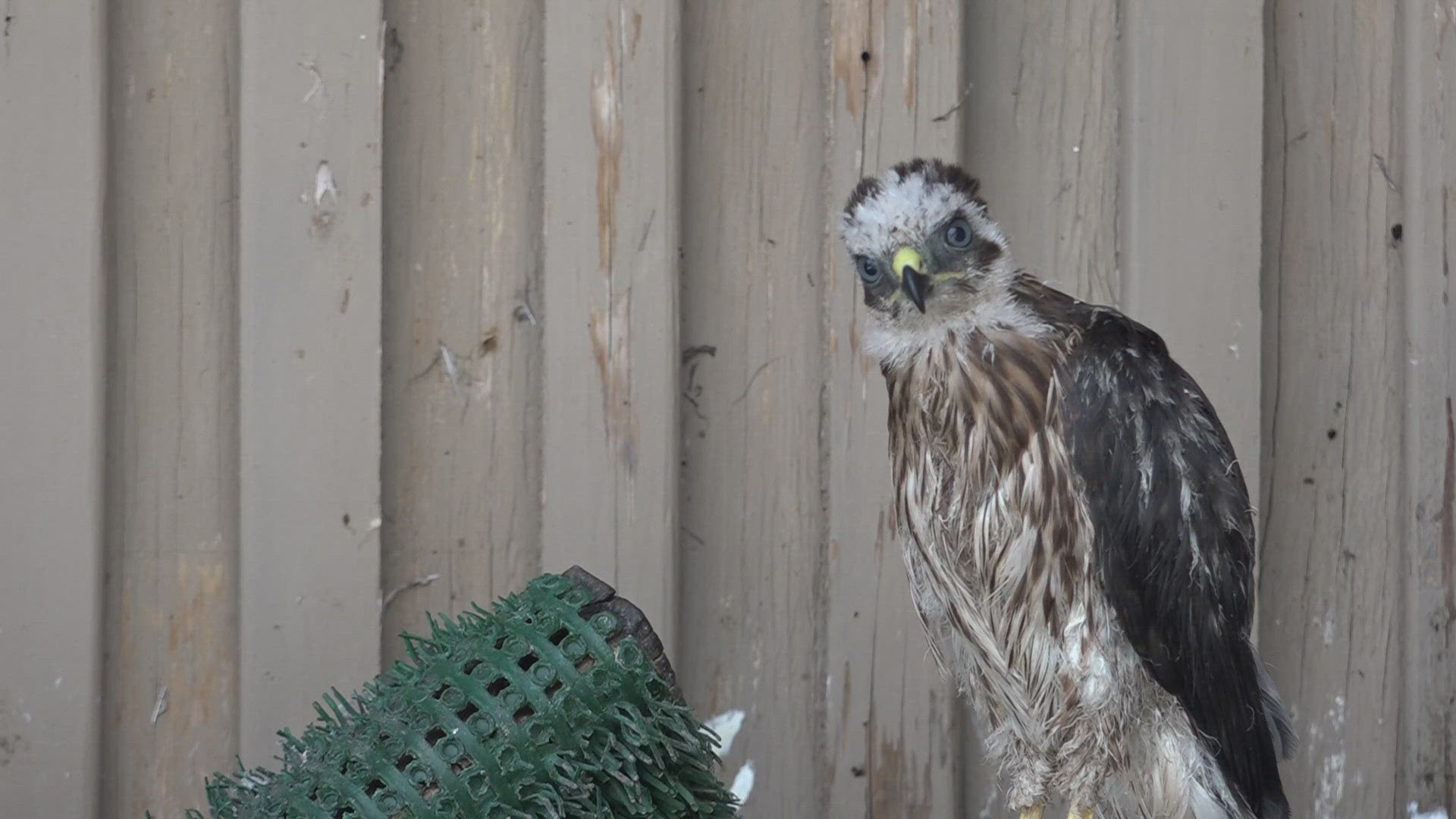PHOENIX — Walk into the medical rooms at Liberty Wildlife and cages are filled with animals. The rescue and rehabilitation center is seeing a large number of intakes and officials say the heat is to blame.
"We've had a record number of intakes," Wildlife Biologist Laura Hackett said. "We've had over 100 patients a day basically for the last couple of days. With the record temperatures or the temperatures jumping at least as high as they have and as quickly as they did, we're seeing a lot of animals feeling the heat."
In three days, officials said they received more than 350 intakes. Nearly 60 of those intakes were Cooper's Hawks. Officials said the beautiful and fast bird is more common than people think, but with the heat increasing, more are finding their way to the facility.
"We know June is usually our busiest month because that's when the temperatures start to spike up," she said. "What's different this year, is we're seeing more Cooper's Hawks jump out of the nest than usual. So we took in 56 over the course of three days and we're continuing to see more and more as we see the heat staying high."
The birds are coming in after being found on the ground by people. They're usually around four to six weeks in age, which is when they're learning how to step out of the nest, but aren't quite ready to fly. However, with the heat, they're willing to do what they can to try and cool off.
"You usually have four Cooper's Hawks babies in the nest and then the parents, so when they're up high and in that crowded nest, they're getting hot just like we are," Hackett said. "A lot of them are just jumping to the ground to try and escape the heat and try and find something cooler. So, they're landing on the ground, most of the time they're perfectly healthy and the parents are still around and able to watch them on the ground."
Hackett said people who find the birds are concerned about leaving the animal on the ground. However, in most cases, it may be what's best for the Cooper's Hawk.
"If it's a safe yard, if the animal isn't injured, if it doesn't look like it's in distress and the parents are still around, you can let them stay there," she said. "The parents will continue to raise them. If you keep them on your property that's great, just observe them from afar. It's a really great thing to get to watch. The babies change literally day by day and to be able to watch that transformation in your own backyard would be really cool. Just keep your distance, if you have dogs out maybe put them on a leash and go to the other side of the yard, and you can leave out water but clean the bowls regularly because the hawks can contract any disease that's passed through water."
She added if the birds are showing signs of an injury or if it's a dangerous situation to reach out to Liberty Wildlife. They will happily take the animal or answer any questions you may have. However, with so many intakes, they are having to do some rearranging.
"Every year we're ready for the heat and onslaught of birds coming in, but it's always a surprise when that first weekend comes," she said. "Right now, I don't want to say we're overwhelmed, but we definitely are having to move things around in order to make these animals fit at Liberty Wildlife. All of our cages in our ICU are filled and so we're spilling into our triage cages. What's great is a lot of them are healthy and we're able to get them moved into our pre-release cages with our foster parents so they're on the next step towards being released."
If you find a bird or any other animal that may need some help, you can always call Liberty Wildlife at 480-998-5550. You can select 1 for an animal emergency. If you leave a message the team will call back within about 10-30 minutes.
The agency is always looking for volunteers as well, you can go here for more information.
>> Download the 12News app for the latest local breaking news straight to your phone.
12News on YouTube
Catch up on the latest news and stories on the 12News YouTube channel. Subscribe today.

